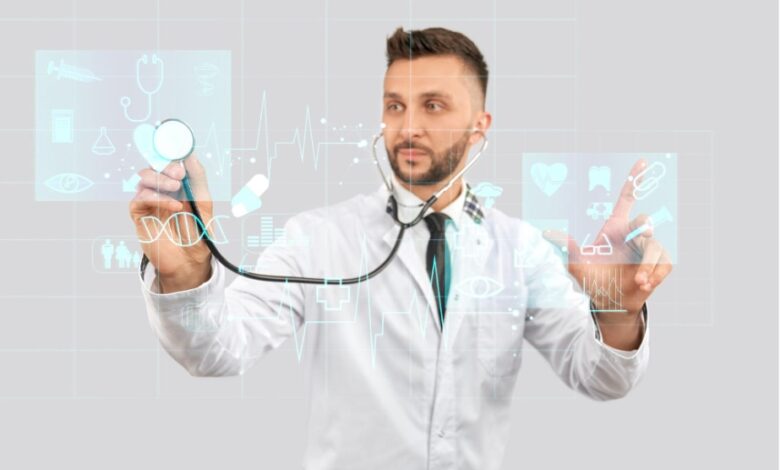What is Data Analytics in Healthcare?

In the current dynamic healthcare industry, it is crucial to grasp what is data analytics in healthcare to enhance patients’ experience and organizational productivity. In this article, let’s delve into various categories of data analytics, their advantages, and prospects for development. Also, you can know how they can be used to create efficient healthcare analytics.
What is Data Analytics in Healthcare?
Healthcare data analytics can be described as the utilization of raw data in a search for trends, conclusions, or recommendations to improve patient outcomes, effectiveness, and delivery of services in the healthcare sector. Some types of data that are employed include patient data, clinical data, and operational healthcare department with payroll software data for analysis data can lead to the reduction of the United States healthcare expenditure After edit: data can lead to the reduction of the United States healthcare department with payroll software expenditure.
Healthcare data analysis can be done with several approaches and methods ranging from data descriptions to artificial intelligence. Understanding what is data analytics in healthcare can help all the stakeholders comprehend how this field can be used for the benefit of patients and their treatment.
Types of Data Analytics in Healthcare
Data analytics in healthcare comprises different streams, which are quite important in improving patient care and organization performance.
- Web and Social Media Data: Derived from the user’s activities on the websites and applications, it reveals patients’ activities and preferences.
- Machine Data: Gathered from sensors and devices, machine data enables the tracking of patients’ vital signs and the condition of the used equipment in real-time.
- Transactional Data: It comprises of health care claim and billing information which is useful in financial and administrative processes.
- Biometric Data: Include fingerprints, DNA, and signatures, which are important for identifying people for medical, security, and other purposes.
- Human-Generated Data: Consists of both organized and unorganized data, which can give a more extensive view of the patient information.
Comprehending different types of data analytics in the healthcare setting helps you to benefit from these resources in improving patients’ lives and organizational performance.
Benefits of Data Analytics in Healthcare
The benefits of data analytics in healthcare are numerous and extend across the different subsectors of the healthcare industry.
- Cost Reduction: Big data analysis is very useful for the identification of patterns and inefficiencies in healthcare services, which can ultimately lower the costs of healthcare. Efficient use of data can lead to the reduction of the United States healthcare expenditure by up to $750 billion per year.
- Minimizing Medical Errors: Data analytics assist in identifying patterns in the EHRs; therefore, eliminating diagnostic errors that may be dangerous to the patient.
- Improving Diagnostics and Predictions: Artificial intelligence and machine learning can help predict and suggest appropriate tests, which helps increase the correct medical choices.
- Increasing Health Indicators: Big data analytics enhances the health of the public; which helps in identifying and treating chronic illnesses.
- Enhancing Patient Experiences: Data analytics means that healthcare providers can make the right decisions, hence increasing patients’ satisfaction.
The benefits of data analytics in healthcare are undeniable, as it leads to cost efficiency, accurate diagnosis, and patient satisfaction.
The Future of Data Analytics in Health Care
The future for data analytics in healthcare seems promising, promising more integrated and real-time data landscapes.
Wearable devices and machine learning models will transform data collection and analysis in the future. All these innovations will enhance the patients’ roles and improve the physician-patient bond.
As technology evolves, the future of data analytics in healthcare will be even more promising in improving the quality of patient care and organizational performance.
How KMS Helps with Healthcare Analytics Solutions
To get the best power from data analytics, you can consider engaging a competent service provider. KMS Healthcare specializes in healthcare software solutions where we assist healthcare organizations in using data analytics to improve patients’ care, research, and population health. KMS Healthcare covers everything from mobile applications to interchangeability testing and automation.
KMS Healthcare has vast experience in healthcare software solutions; organizations can only embark on data analytics projects under the company’s guidance as it guarantees the success of the project in the long run.



